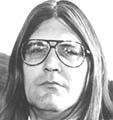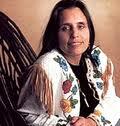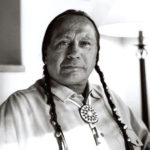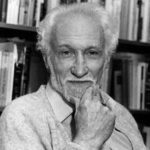Native America 3-Pack
3 CDs
Includes:
Native America: A Little Matter of Genocide
In the Balkans in the 1990s, vast areas were targeted for "ethnic cleansing." The world recoiled in horror. In Rwanda, the killing was even worse. There was intense media coverage and much hand-wringing. Absent from the discussion is any acknowledgment that when it comes to ethnic cleansing, the U.S. takes a back seat to no one. In its drive for territory under the banner of "manifest destiny," the continent was virtually cleared of its indigenous population.
Native American Eco-Justice
Eduardo Galeano in his masterwork, The Open Veins of Latin America wrote that 500 years ago European settler colonialists came to this hemisphere and “sank their teeth” into the throats of Indian civilizations. You know the story. Genocide. Land was stolen. Broken promises and broken treaties. Survivors exiled to inhospitable reservations. In recent years indigenous people are organizing and asserting their rights. Standing Rock in North Dakota was a key moment where some 200 nations came together to resist the Keystone XL pipeline. New terms entered the lexicon of resistance such as water protectors and stewards of the land. Keystone and other struggles continue as does corporate capitalism’s monomaniacal drive for profits regardless of the cost to Mother Nature and indigenous peoples. Chief Seattle once said, "The Earth does not belong to us; we belong to the Earth." Recorded at University of Montana
Knowing Who You Are: Lessons from Native America
For years the indigenous peoples of the U.S., after having been dispersed and decimated and relegated to reservations, were reduced to caricatures. We all knew Indians and their culture. There was the familiar medicine man, the trading post, Geronimo and Crazy Horse, papooses and squaws, tepees and tomahawks, war dances and war parties. Tonto was the epitome of faithfulness and subservience. The formation and rise of the American Indian Movement, AIM, in the late 1960s and early 1970s did much to break down conventional stereotypes. AIM, through its actions at Wounded Knee, Alcatraz, Mount Rushmore and the Bureau of Indian Affairs, demonstrated that Native Americans could and would fight back against racism and oppression. Recorded at the Boulder Public Library.
Speakers

Ward Churchill
Ward Churchill is a prolific author. Among his many books are Fantasies of the Master Race, Struggle for the Land, Indians Are Us? and A Little Matter of Genocide. Churchill made national headlines when he resigned from his position as Chairman of Ethnic Studies department at the University of Colorado due to increasing public outcry against the contents of an essay from his book, Some People Push Back: On the Justice of Roosting Chickens.

Winona LaDuke
Winona LaDuke is a brilliant and articulate representative of Indigenous perspectives. At the age of seventeen, she spoke at the UN on behalf of Native Americans. She is a founding member of Women of All Red Nations and director of the Land Recovery Project on the White Earth Reservation in Minnesota. She was the 1996 and 2000 vice-presidential candidate of the Green Party. She is the author of All Our Relations, Recovering the Sacred, The Militarization of Indian Country, and The Winona LaDuke Chronicles.

Russell Means
Russell Means was a renowned activist for Indian Rights. An Oglala Lakota, he was born on the Pine Ridge Indian Reservation in South Dakota. He was a founding member of the American Indian Movement and its first national director. His autobiography is Where White Men Fear to Tread. He passed away in 2012.






Reviews
There are no reviews yet.